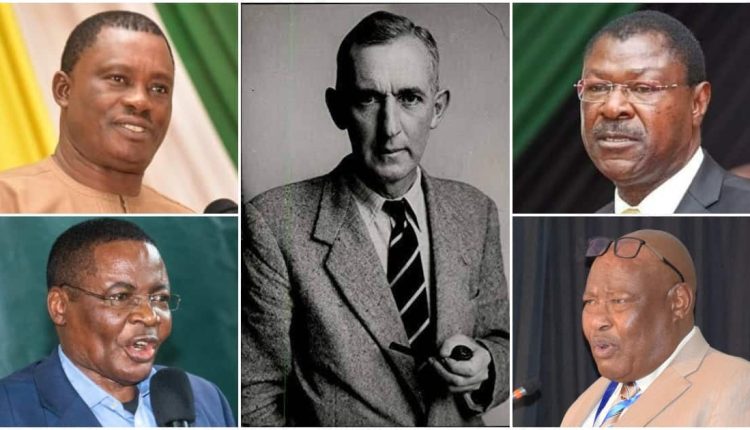
List of Kenya’s National Assembly Speakers Since Independence
Kenya has had a total of 8 national assembly speakers since its independence. The National assembly is the lower house of the Kenyan parliament after the 2010 constitution which proposed the formation of the senate assembly, which is the upper house of parliament.
However, the national assembly retains its position as the most recognized house of legislators, and its speaker remains the third in command in the country.
Today, we look at the list of Kenyan leaders who have been lucky to occupy the central role of the speaker in the national assembly.
Kenya’s National Assembly Speakers Since Independence
1. Sir Humphrey Slade
Slade EBS (1905 – August 10, 1983) was a Kenyan politician and lawyer. From 1967 to 1970, he was the first Speaker of the National Assembly. Slade had previously held the same position in the House of Representatives from 1963 to 1967, as well as in the Legislative Council prior to independence from 1960 to 1963.
2. Frederick Mbiti Mati
Mati succeeded Slade and worked in the second, third, fourth, and fifth legislatures. Prior to Kenya’s independence in 1963, he was the Minister of Health and Housing in the grand coalition.
Mati was also a member of Kenya’s Legislative Council from 1961 to 1970, and the first MP for Kitui North, now Kitui County, from 1963 to his election as Speaker in 1970.
3. Moses Kiprono
Kiprono became the third Speaker, serving in the sixth Parliament from April 12 to May 1991. Between 1962 and 1967, Keino studied at the Hochschule fur Oekonomie in Karlhorst, East Berlin, Germany, and graduated with a Master’s degree in Economics.
He was also a Member of Parliament for Kericho East on a KANU ticket for 15 years (1969 – 1983).
4. Kimetet arap Ng’eno
Ng’eno presided over a portion of the sixth Parliament and served in the seventh. His long race to become Speaker began after he served in various capacities in the Cabinet.
He took the helm at a time when the country was actively campaigning for multiparty democracy, which caused the establishment a headache.
5. Francis Ole Kaparo
Kaparo served as the Speaker in the 7th, 8th, and 9th congresses from January 26, 2008. His gift of gab endeared him to many, and his command of standing orders was so impressive that he rarely alluded to the small grey book containing House rules.
A man known for his humor once stated that he doesn’t understand why an individual paid to listen is called Speaker.
6. Kenneth Marende
Marende was a member of the 10th Parliament. Prior to his election as Speaker in January 2008, he was the MP for the Emuhaya constituency from 2002 to 2007.
Due to an impasse between the president and the prime minister, he was forced to make a stringent ruling on who should be the leader of government business when Parliament reopened in April 2009.
In his historic decision, he appointed himself as the temporary Chair of the House Business Committee based on Parliamentary standing orders until the impasse was resolved.
7. Justin Muturi
Justin Muturi was elected to the 11th and 12th legislatures after serving as a principal magistrate from 1982 to 1997. He was the first Speaker to serve after the 2010 Constitution mandated the re-establishment of a bicameral Parliament.
Muturi was elected speaker on March 28, 2013, after a second round of voting by National Assembly members, defeating Kenenth Marende by a 219-129 margin.
8. Moses Wetangula
Wetang’ula officially took over the 13th Parliament from Muturi on 8th September 2022. Prior to that, he had served as the senator of Bungoma County from 2013 to 2022, and earlier as an MP and a minister of foreign affairs.
He soared to become Kenya’s 3rd most powerful fella after Ruto and his deputy, Rigathi Gachagua, following his election as Speaker.
The Speaker is an ex-officio member of Parliament under Article 106 of the constitution.
